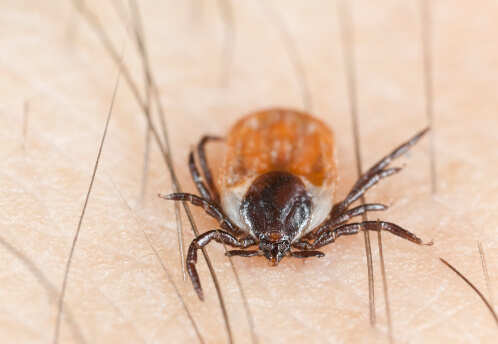 Jaipur: A team of entomologists and epidemiologists from the National Centre for Disease Control (NCDC) has sent samples of Hyalomma ticks collected from Jodhpur’s affected area— Molana Azad Nagar — to the National Institute of Virology, Pune, for ascertaining how many of them are loaded with Crimean-Congo Haemorrhagic Fever (CCHF) virus for transmitting it to humans.
Jaipur: A team of entomologists and epidemiologists from the National Centre for Disease Control (NCDC) has sent samples of Hyalomma ticks collected from Jodhpur’s affected area— Molana Azad Nagar — to the National Institute of Virology, Pune, for ascertaining how many of them are loaded with Crimean-Congo Haemorrhagic Fever (CCHF) virus for transmitting it to humans. The Centre’s team closely examined the area during its visit to Jodhpur where they found Hyalomma ticks on cattle, buffaloes and goats. For examining how serious the threat of CCHF in the area, they collected some of them and sent 13 samples (hyalomma ticks) to the National Institute of Virology to ascertain whether these ticks were actually infected with CCHF virus and to ascertain that if they are potential threat for transmission of CCHF to humans.
The Centre had sent the team from NCDC after Jodhpur reported its first CCHF case in the past four years. In 2015, Jodhpur had reported cases of CCHF in which a nurse had died while undergoing treatment at AIIMS, Delhi, after she acquired the disease from the patient while treating her. The hospital staff providing treatment to CCHF patients are always at higher risk of getting nosocomial infections. Since, Jodhpur had already reported cases of CCHF in 2015, the Centre and the state government is taking the threat of CCHF seriously.
“So far we have only one confirmed case of CCHF in Jodhpur. Centre’s team has inspected the affected area. We are conducting surveillance,” said Dr Balwant Manda, CMHO Jodhpur.